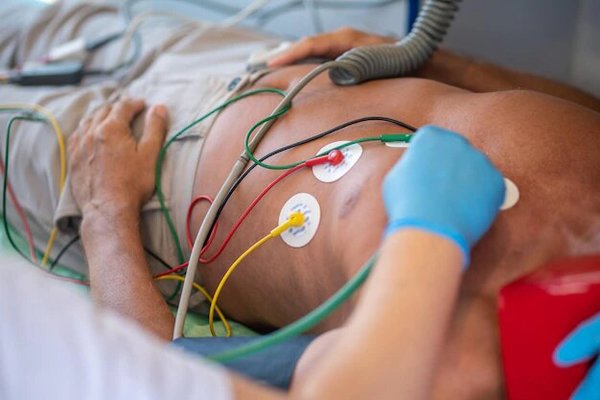
Introduction
The human heart is a marvel of engineering, a rhythmic symphony that orchestrates the flow of life. At the core of this intricate system lies the delicate dance of electrical signals, governing each heartbeat with precision. Understanding and managing these electrical impulses is the domain of cardiac electrophysiologists, specialized physicians who play a vital role in the diagnosis and treatment of heart rhythm disorders. In this article, we delve into the world of cardiac electrophysiology, exploring the intricacies of the heart's electrical system and gaining insights from a seasoned cardiac electrophysiologist.
Understanding Cardiac Electrophysiology
The heart, despite its seemingly straightforward role of pumping blood, relies on a sophisticated electrical system. Cardiac electrophysiologists are experts in this field, dealing with the intricate network of signals that regulate the heart's rhythm. To comprehend their work, it's essential to recognize the heart's electrical anatomy.
The heart's electrical system comprises specialized cells that generate electrical impulses. These signals coordinate the contraction and relaxation of the heart muscles, ensuring an efficient and synchronized pumping action. Cardiac electrophysiologists, through their training and expertise, decipher the nuances of these electrical patterns, identifying irregularities that may lead to rhythm disorders.
The Journey to Becoming a Cardiac Electrophysiologist
Becoming a cardiac electrophysiologist requires a comprehensive educational background and specialized training. These physicians typically undergo rigorous medical education, followed by residency and fellowship programs tailored to cardiac electrophysiology. The journey to becoming a cardiac electrophysiologist is driven by academic pursuits and a genuine passion for unraveling the mysteries of the heart's electrical intricacies.
For many electrophysiologists, the decision to specialize in this field is deeply personal. Driven by a desire to make a meaningful impact on patient's lives, they embark on a journey that involves continuous learning and adaptation to the evolving landscape of cardiovascular medicine.
The Heart's Rhythm Disorders
Cardiac electrophysiologists are on the front lines of managing rhythm disorders, conditions that disrupt the heart's natural beat. Atrial fibrillation, ventricular tachycardia, and bradycardia are just a few examples of rhythm disorders that these specialists frequently encounter. Understanding these disorders and their implications for overall heart health is crucial in providing effective care.
Rhythm disorders can have a profound impact on a patient's quality of life. They may lead to symptoms such as palpitations, dizziness, fatigue, or even more serious complications like stroke or heart failure. Early detection and intervention are paramount, and cardiac electrophysiologists play a pivotal role in diagnosing these conditions and implementing targeted treatment strategies.
Cutting-edge technologies in Cardiac Electrophysiology
Advancements in technology have revolutionized the field of cardiac electrophysiology. Diagnostic tools, imaging techniques, and therapeutic interventions have seen remarkable progress, enabling more accurate diagnoses and tailored treatment plans.
Cardiac electrophysiologists now have access to state-of-the-art mapping systems, allowing them to visualize and analyze the heart's electrical activity with unprecedented detail. Innovative catheter-based procedures, such as ablation, provide targeted treatment for specific areas causing rhythm disturbances. These technological leaps not only enhance the precision of interventions but also contribute to better outcomes for patients.
Patient Stories and Impactful Cases
Behind every cardiac electrophysiologist's journey are countless patient stories, each a testament to the profound impact these specialists can have on lives. Real-life examples of successful interventions and life-changing outcomes underscore the importance of their work.
One poignant story involves a patient suffering from recurrent episodes of atrial fibrillation, a common rhythm disorder. Through meticulous diagnosis and a personalized treatment plan, the cardiac electrophysiologist was able to restore normal rhythm, significantly improving the patient's quality of life. Such cases highlight the transformative potential of cardiac electrophysiology in restoring health and well-being.
Collaboration in Cardiac Care
The complexity of heart health necessitates a multidisciplinary approach. Cardiac electrophysiologists collaborate closely with other healthcare professionals, including cardiologists, cardiac surgeons, and nurses, to ensure comprehensive and holistic patient care.
Teamwork is particularly crucial when managing complex cases that may require a combination of medical, surgical, and electrophysiological interventions. The collective expertise of these professionals allows for a synergistic approach, addressing not only the immediate concerns but also the long-term well-being of the patient.
Challenges and Future Trends
Despite the progress in cardiac electrophysiology, the field faces ongoing challenges. Technological advancements bring new complexities, and the increasing prevalence of heart rhythm disorders presents a continuous demand for innovation and research.
Emerging trends in the field include the exploration of novel therapies, advancements in remote monitoring technology, and a deeper understanding of the genetic factors influencing rhythm disorders. Cardiac electrophysiologists are at the forefront of these developments, navigating the challenges and steering the course toward improved patient outcomes.
Advice for Patients
As we unravel the world of cardiac electrophysiology, it's essential to consider the perspective of patients. Tips for maintaining heart health, recognizing symptoms of rhythm disorders, and seeking timely medical attention are crucial aspects of patient education. Cardiac electrophysiologists often emphasize the significance of lifestyle modifications, medication adherence, and regular follow-ups to ensure optimal heart health.
Conclusion
In conclusion, the role of cardiac electrophysiologists goes beyond the clinical realm. Their work is a blend of medical expertise, technological proficiency, and a genuine commitment to improving the lives of those affected by heart rhythm disorders. Navigating the heart's rhythm requires not only skillful hands but compassionate hearts, and in the realm of cardiac electrophysiology, the fusion of science and empathy creates a symphony of healing for those touched by the dance of the heart's electrical signals.

Leave Comment Below
0 Comment(s)